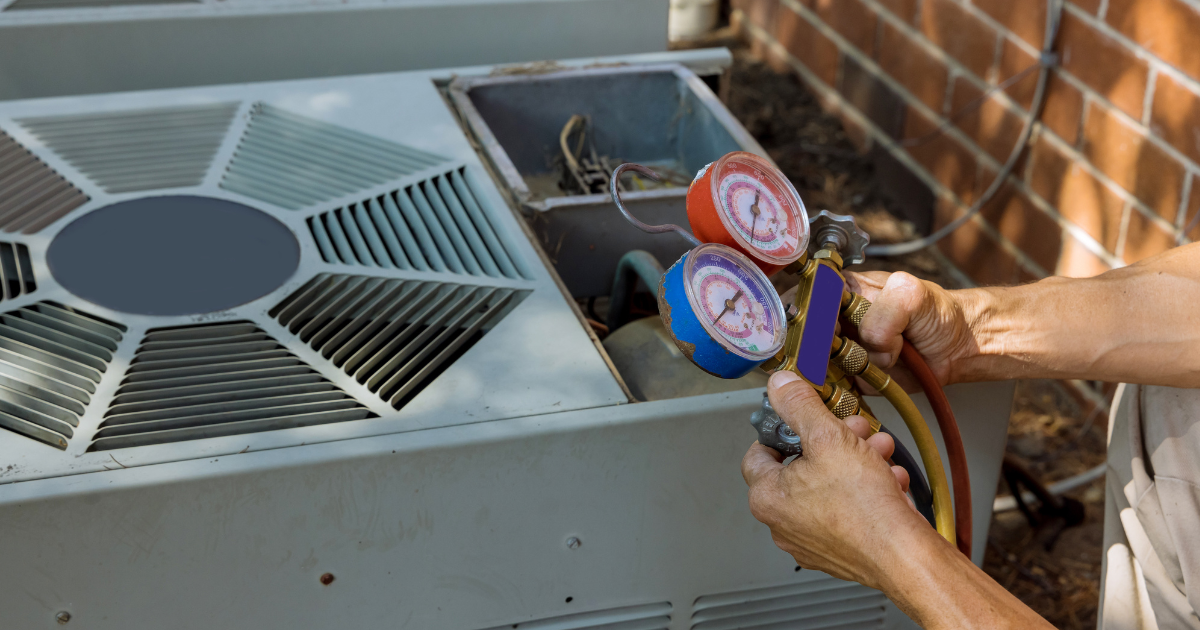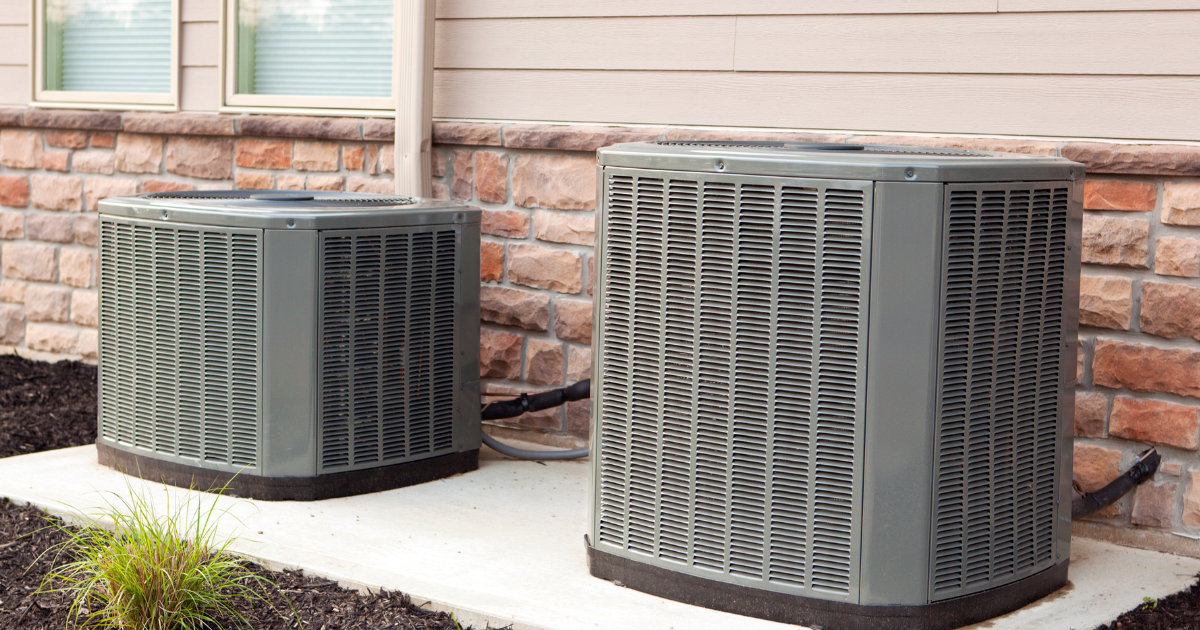Deciding How Often To Replace Your HVAC Air Filters
Without clean HVAC air filters, your heating, cooling, and ventilation system could be dirty and clogged up all the time. Those filters catch the harmful particles floating around your household. In turn, the HVAC system protects you and your home from all the dust, dirt, pollen, pet dander, mold spores, and other contaminants.
However, your HVAC filters can’t just trap particles forever without getting overly packed with these contaminants; to keep your filters functional and effective, you need to replace them regularly. Every household is unique, though, so you need to consider several variables to determine how often you should switch your filters.
THE TWO MAIN FILTER TYPES
There are two primary types of household HVAC filters, and each one has a recommended baseline for how often you should replace it. Fiberglass filters are the more affordable of the two, but they also tend to be slightly less effective at catching particles. On average, fiberglass filters should be replaced monthly.
Pleated filters are pricier, but you get what you pay for, and they’re impressively efficient at keeping your appliances clean and healthy. Plus, you don’t have to replace them as often; the average lifespan for pleated filters is around three months.
Both types of filters are disposable once you’re finished with them. Remember, the one- and three-month lifespans are baselines; there are several other factors that are dependent on your personal situation that could affect filters’ usefulness.
DIFFERENT GUIDELINES FOR DIFFERENT SEASONS
Although it would be easier if you could replace your filters on the same schedule all year, that isn’t practical. The time of year has a direct impact on how quickly the filters become dirty or clogged. During the mild Riverside spring and fall seasons, you most likely aren’t relying as heavily on your heating or cooling systems. As a result, less air is cycling through your HVAC systems, and fewer particles end up in the filters. During these seasons, you can wait a bit longer than average to replace the filters.
The opposite is true for the harsher summer and winter months. A good rule is that, whenever you’re frequently depending on your HVAC appliances for comfort, be proactive about changing your filters. If you let it go, you may be faced with inevitable and potentially costly air conditioner repairs.
THE SIZE OF YOUR HOME
The overall size of your home impacts your HVAC filters as well. The more square footage you’ve got, the more air your appliances must circulate to distribute hot or cool air to every part of the house. As a result, filters in large homes usually get dirty and need replacing more quickly than the filters in small houses. However, if you’re in a relatively small dwelling, you’ll want to check the size of your HVAC unit; sometimes, smaller homes will be equipped with significantly smaller units. In that case, the filters will be smaller too, and they’ll likely become clogged just as fast as they would in a large home.
PETS MAKE A BIG DIFFERENCE
The more pets you have living in your home, the more frequently you’ll need to switch out your filters. Primarily, this is because of all the pet dander and hair that our furry little friends produce. Lots of those hairs and particles will be cycled through your system consistently. Additionally, if you have dogs or other pets that spend time outside, they’ll regularly track dirt, pollen, mold spores, and other contaminants in from the outdoors.
DEALING WITH ALLERGIES
Do you or anyone else living in your home suffer from allergy symptoms? If so, the presence of dust, pollen, and pet dander will exacerbate those annoying, uncomfortable reactions. If you have allergies and don’t replace your filter frequently, you’ll likely find yourself coughing, sneezing, and scratching constantly.
When allergic reactions are a factor, you probably don’t want to wait until your filters get overly dirty or clogged before replacing them. To ensure that the air circulating through your home is always as clean as possible, be extra proactive about purchasing replacements. New air filters are generally affordable, and your nose and throat will thank you.
BIG CITY LIVING
Unless you’re somehow able to keep your home sealed up tightly 24/7, then the air quality of the area you live in will affect your HVAC filters. If you live somewhere with pervasive pollution, such as a big city or industrial area, far more smoke, dust, and debris will make their way through your household. That increased pollution will result in your filter losing effectiveness more quickly. However, if you live out in the country or somewhere surrounded by trees, the air cycling through your HVAC system is probably cleaner on average.
Wildfires around the country have become more common in recent years, and if you live in an affected area, your filters are probably encountering a fair bit of that smoke. Don’t forget to take this into account when it comes to replacing them.
WHO LIVES IN YOUR HOME?
In many cases, the number of residents in a household will play a role in the HVAC filter lifespans. For example, if you live by yourself and you’re spending eight hours at work each day, your heating and cooling systems likely aren’t working all that hard. In that case, your filters can probably last longer than those in the average home. However, if there are four or five of you and multiple people are usually home at the same time, the odds are that air is getting circulated frequently. That means your HVAC filters are probably working pretty hard and will require more consistent changing.
It’s also important to consider whether or not you have any children in the home. Young children are usually more sensitive to airborne contaminants than adults are. To keep them healthy and comfortable, you’ll want to be extra proactive about keeping your filters clean and efficient.
VISUAL INSPECTIONS ALWAYS HELP
Even when you take all of these factors into account, it will probably take some trial and error to figure out your filter replacement routine. While you’re trying to determine how long your HVAC filters last, visually inspecting them will be a huge help. Whenever you’re in doubt, simply hold the filter up to a light source. If the light passes through the filter, it’s probably still clean enough to be effective. If it doesn’t, though, you should take the safe route and replace it with a new one.
Remember, it’s far better to replace your HVAC filters a little sooner than necessary than it is to wait too long. Having consistently clean filters will save you money, improve your comfort, and keep your system healthy for the long haul.
Since 2010, our team at Dragonfly Heating & Cooling has offered quality heating and cooling services to the Riverside area. We treat all of our customers like family, and we’re dedicated to service, support, and education. We don’t just provide installations and tune-ups; we help you choose the best option for your home and walk you through the entire process. In addition to heating and cooling, our team can assist you with ductless systems and maintenance plans. To learn more about our services, contact us at Dragonfly Heating & Cooling today!


